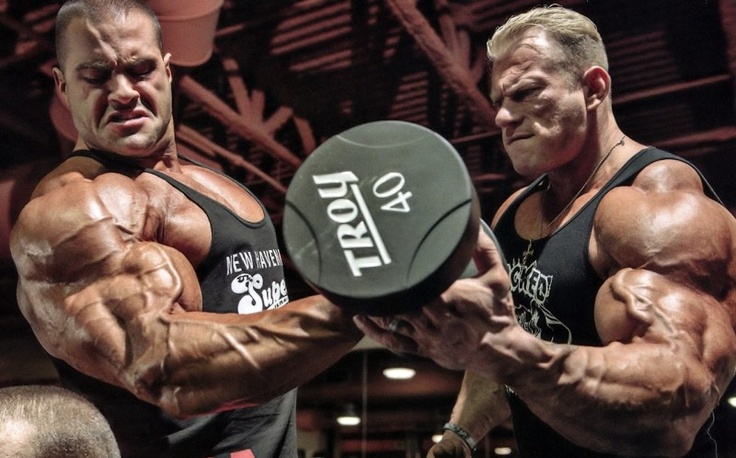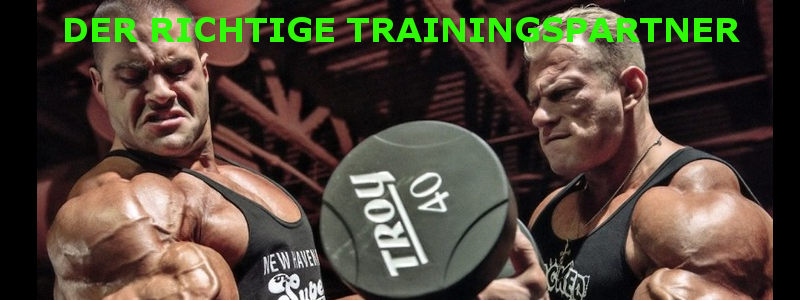Just as important as the handle is for your own safety (see Blog Daumen Regel für besseren Griff > > ), the idea of training with the help of a helper seems all too natural at this point. Some training accidents would have been much worse if they hadn't had a training partner by their side.
So we ask you: do you always train with a helper when you are putting on more weight?
While we do not want to see any show of hands from you here, we would like to mention a few important points.
Erstens Of course, you should always have a training partner at your side, but not everyone is suitable.
Do not ask the petite young lady on the treadmill for help or the handsome guy who keeps making beautiful eyes on this brisk bee on the treadmill.
Find yourself instead, someone you know is really serious about their own training. Such a person will most likely not only care about you correct assistance to accomplish, but maybe also know what one good training partner matters.

Evan Centopani und Dennis Wolf during training.
HELP IS AN ART
To find a good training partner, you first need to be one yourself. Never let the trainee down! Don't act like the athlete who watches his colleague bench press, but waits until his friend nearly collapses under the weight before offering assistance.
And most important of all: Be careful to keep the dumbbell moving. If you are assisting, stand with your knees bent and move up and down with the barbell. In addition, your hands should always be a few centimeters under the dumbbell, even touching them from below. If the exerciser is slowing down, they'll just help him enough to finish his repetition.
A good helper is in a sense imperceptible to the trainee. He sees exactly how much help is needed and only does what is necessary. "Active assistance" not only ensures that you are in control of the situation, but also ensures that you ultimately get a better sentence. Because you helped the trainee to complete a few additional repetitions.

However, be realistic. If someone asks you for help, two conditions must be met: The exerciser must be able to lift the weight at least a few times without your help.
And if your help is needed, you should actually be able to help him with the weight.
If asked for help, ask the trainee how many repetitions they want to do. If he says he just wants to try one, see yourself another helper because you will probably need it.
In fact, you should never assist anyone unless you feel confident about making sure they are moving safely. There is no place for pride here.

